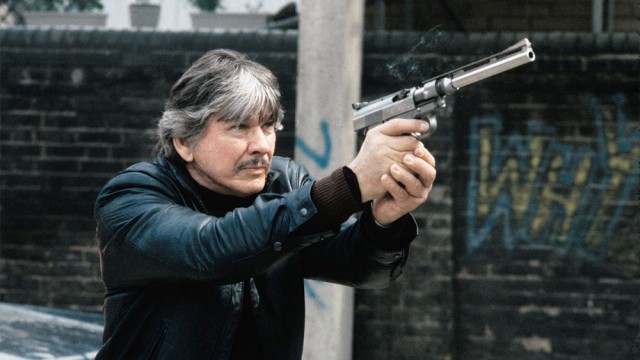The 1980s were defined by excess. If the 1960s could be defined by rebellion, and the 1970s could be defined by loathing, the 1980s was the all out celebration of mainstream excess. In that measure, Cannon Films is unmatched in their celebrations of excess funded by debt. Specializing in low-budget genre affairs, Cannon Films was a grindhouse studio whose business plan was making films cheap enough for the surprise hits to cover the rest of the failures. To a point, Cannon was the proto-Blumhouse.
Cannon Films began as a foreign nudie distribution company back in the 1960s as the censorship walls were being torn down. Initially distributing movies like Inga and Jodorowsky’s Fando y Lis, Cannon would produce the Oscar-nominated drama Joe in 1970, before diving into distributing such films as The Happy Hooker and The Yum Yum Girls. On the brink of bankruptcy, Cannon was sold to Israeli cousing Menaham Golan and Yoram Globus in 1979. That’s really where the story starts, because when people discuss Cannon Films, they’re really referring to the Golan-Globus era of the 1980s.
Electric Boogaloo documents the story of the rise and fall of the Golan Globus Cannon Films. Beginning with the Golan-directed glam disco musical The Apple and essentially crashing with the overreaching and underbudgeted Superman IV: The Quest For Peace, Electric Boogaloo alternately glorifies and crucifies this era of debt-ridden excess. Director Mark Hartley, who provided the same treatment to the Ozploitation doc Not Quite Hollywood, uses a rapid fire technique to rifle through Cannon Films’ greatest hits while documenting their business moves.
Hartley collects a wide array of talking heads to offer up rapid comments on their Cannon experience, but is missing a number of key players – namely, Charles Bronson, Chuck Norris, Menaham Golan, and Yoram Globus. The final result is a slick – far slicker than the usual Cannon Film – fast-paced dissection of a company by the people who are constructing narratives based on their individual parts in the company.
Hartley almost overstays his welcome at 106 minutes of exhaustive pacing and excessive imagery. He runs through clips ranging from the signature Missing in Action and Death Wish series to the cult movies like Breakin’ and The Texas Chainsaw Massacre Part 2, to the arthouse of Godard’s King Lear. The cataloging of Cannon’s successes and failures is nothing if not thorough. As a primer on the studio that all the nostalgic critics keep referencing, or as another story of the glories and pitfalls of a company out of control (see also: All Things Must Pass), Hartley’s movie provides a tasty snack that ultimately delivers on the thrills even if it is fatally flawed. Totally fitting for Cannon Films.


